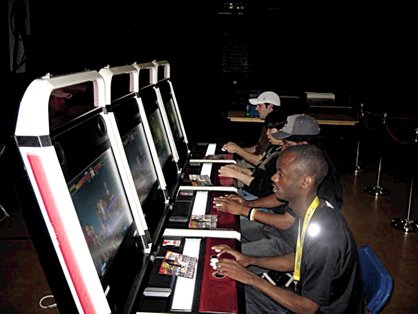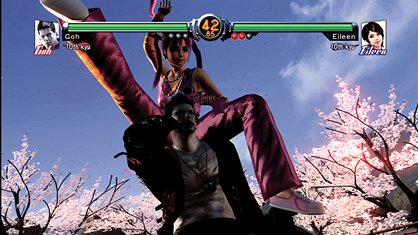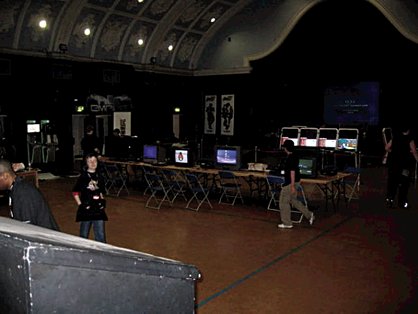Want to become a pro gamer?
Ryan King, the second-best Capcom vs SNK player in the UK, gives expert advice on turning pro
Even if the prizes aren’t enough to make a living from it, there’s still more than enough incentive to hone your skill and enter. At the recent Battle of Destiny tournament held in London’s Metropolitan University, Tekken Dark Resurrection was one of the four fighting games to play host to a tournament where the winner would walk away with a free flight to Las Vegas. The reason? To enter the international EVO tournament, where the prizes have been known to top $5,000 in the past. With Street Fighter IV on the horizon and Super Street Fighter II: HD Remix in full swing, fighting gamers will soon have plenty of reason to hone their skills for next year’s tournament...

So, what constitutes practice? That depends on the game, with the same skill-sharpening techniques happening across genres. For sports and racing games, the only practice that’s really needed is to constantly play, play then play some more. Simply by hammering the game as much as possible, it’s easy to see what the best teams or cars are and then adjust your own tactics accordingly.
For FPS team games, most team members will have a role. Successful Rainbow Six Vegas 2 and Call of Duty 4 clans will have snipers on their teams, as it’s a specialist skill that requires dedication to perfect. Then, when every team member has a role, they will rehearse their roles during matches as well as what to do in specific situations. Teams will play on all of the maps, but will often focus on two or three of them that they will favour in tournament situations. For fighting games, players will battle unfamiliar characters and use Training modes to figure out what to do in unusual situations and master which move beats which attacks and so on.

It’s all about dedication. For Super Battle Opera, the huge Japanese fighting games tournament with limited entries for both national and foreign players, the top players will actually quit their jobs up to a month before the tournament begins so they can spend all day down at the arcade perfecting their moves. The truly crazy bit is that the winner doesn’t even get a prize – due to Japanese gambling laws, paying to enter a tournament with a cash prize isn’t allowed. So they quit their jobs a month beforehand and spend money down at the arcade every day to compete for a chance to win a tournament where the only prize is prestige. So next time you’re moaning about not being able to beat that 14-year-old kid at Resistance because he’s playing all day while you’re at work, just remember that...
What makes one player better than another? Why do some players have the knack of hanging around on top of the leaderboards and are successful while others are always found wanting? Some of it is purely mechanical and down to reaction times. You can take any reaction test online and it will measure your response in milliseconds. A good player will have reaction times under 0.25 seconds, meaning that it will take less than a quarter of a second to react to what’s happening onscreen. An exceptionally fast player can react under 0.20 seconds – only 0.05s difference.

Some of it comes down to experience. Not just experience with the game itself, such as knowing the best camping spots on all of the maps in Call of Duty 4, but experience playing under pressure. Some players will wilt under the spotlight, which leads to defensive play. The better players are the ones who can play their normal game under pressure, perhaps even using their expertise to put more pressure on the inexperienced players. Law of the jungle.
Sign up to the GamesRadar+ Newsletter
Weekly digests, tales from the communities you love, and more


